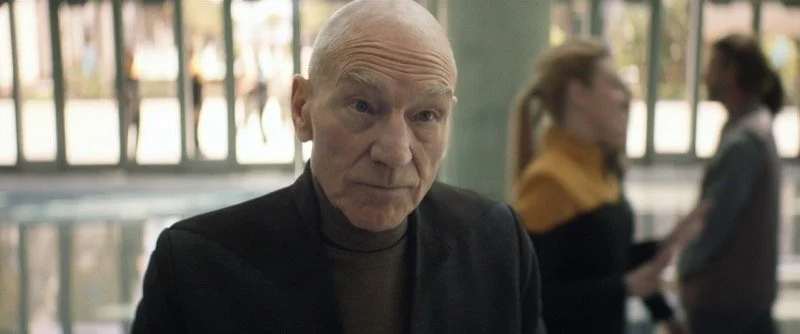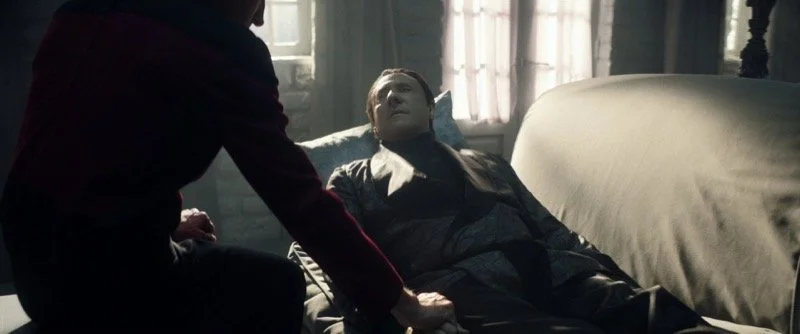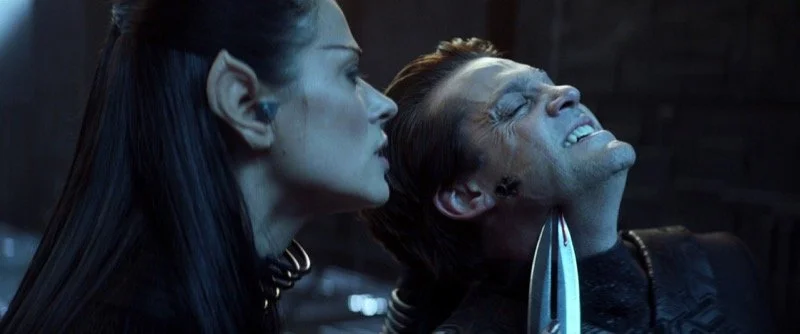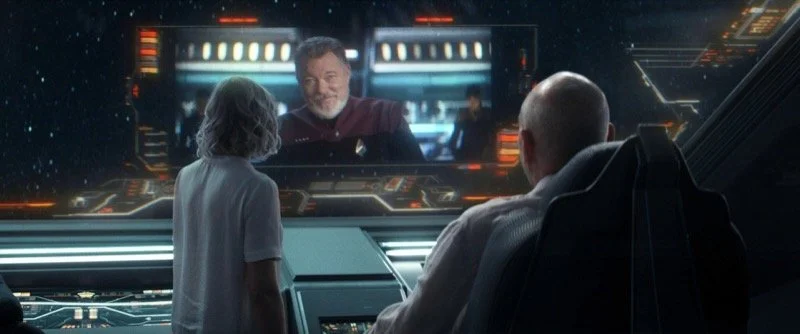Star Trek: Picard Season 1 Review
Image Source: Picard Season One
In 2020, Paramount+ released the first season of Star Trek: Picard, a new Star Trek series featuring the continuing adventures of former Enterprise Captain Jean-Luc Picard from Star Trek: The Next Generation.
Set approximately twenty years following the events of Star Trek: Nemesis and Star Trek (2009), Picard, now an ailing retired Starfleet Admiral living on his family’s vineyard in France, is visited by a mysterious young woman in danger. The chance encounter unexpectedly launches him and a new crew into a larger galactic conspiracy involving Data, the Romulans, the Borg, and Synths, or android-like synthetic lifeforms.
RELATED:
Image Source: TrekCore
The Good:
Star Trek: Picard does a good job of maintaining continuity from events of the “prime” Star Trek timeline, specifically the death of Data and the subsequent destruction of Romulus, which play into key aspects of the storyline the first season. Instead of bringing back together the surviving crew of the Enterprise, the series wisely introduces a new ship and some new and interesting characters to team up with Picard, the most memorable one being Captain Rios, a former Starfleet officer who agrees to give Picard and his team passage on his ship, La Sirena, on their grand adventure. Other new characters include Dahj, Soji, Raffi, and Dr. Agnes Jurati. However, there are some nice cameos from The Next Generation characters, such as cyberneticist Bruce Maddox (The Measure of a Man), Riker, Troi, and Hugh (I, Borg, and Descent, Part 2).
Even Data himself is seen in dreams and, later, in what is essentially a VR simulation of his remaining consciousness at the end of the series, portrayed once again by Brent Spiner. Spiner also portrays a new Soong character, Alton, towards the end of the first season. In an inspired choice, Seven of Nine, from Star Trek: Voyager, is brought in as a recurring character. There is even some LGBTQ representation in the show, as Seven is revealed at the end of the season to be romantically linked with one of the new female characters, Raffi. The special effects, both in terms of visuals and sound, bring post-The Next Generation Star Trek into the 21st Century. Also, the show provides a much better send-off for Data at the end of the season than what ended up in Star Trek: Nemesis, as a VR representation of Data’s consciousness asks Picard to let the rest of him finally die, which Picard aids him in. Some viewers surely teared up watching that scene at the end of the first season.
Image Source: TrekCore
The Bad:
If there were any major complaints about Star Trek: Picard, which applies to “Nu-Trek” in general, it is that the lighting (or lack thereof) sometimes makes it hard to see what is happening onscreen. Also, the action in the show can be so “hyperkinetic” that it also makes it somewhat hard for viewers to keep up with the action, especially those more accustomed to the slower pacing of Star Trek: The Next Generation. The show's overall pacing was a bit slow, and it takes a while for the plot to get moving and for all the pieces to finally come together. However, the season ultimately achieves a satisfying resolution, leaving fans eager for another season. The season left some things unanswered that some fans might have wanted some answers to, specifically, what the state of the Romulan Empire is like at this point in the timeline, following the destruction of Romulus.
Image Source: TrekCore
The Ugly:
There was nothing particularly awful or objectionable about the season.
The Mixed:
Image Source: TrekCore
Simply put, Star Trek: Picard is NOT simply a continuation of Star Trek: The Next Generation, which, depending on the kind of fans out there, may or may not appeal to them. The series is much darker in tone and lighting with few moments of levity, more akin to Star Trek: Discovery than 1990’s-era Trek. The show features characters yelling and swearing, it is more graphically violent than The Next Generation, and some beloved characters are killed off. Even Picard succumbs to his illness at the end of the season, although he is conveniently brought back as a “golem” or synthetic being, which will enable him to live out the rest of his natural life unencumbered by his illness. None of these things are bad per se, but this is just to say that one should not watch this series thinking that it will simply be a straight-up continuation of The Next Generation.
Rating: 7/10 (Recommended)
READ NEXT:

















